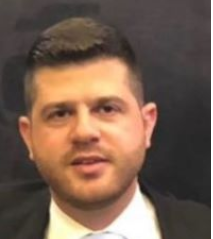 Department of Cardiology, Institute CARDIOMET, University Hospital of Toulouse, Rangueil Hospital, France; Faculty of Medicine, Paul-Sabatier University Hospital (Toulouse III), Rangueil, FranceInterests: interventional cardiology; heart failure; heart transplantation/LVAD; tissue repair and regeneration; stem cells; gene therapy; bioengineering
Department of Cardiology, Institute CARDIOMET, University Hospital of Toulouse, Rangueil Hospital, France; Faculty of Medicine, Paul-Sabatier University Hospital (Toulouse III), Rangueil, FranceInterests: interventional cardiology; heart failure; heart transplantation/LVAD; tissue repair and regeneration; stem cells; gene therapy; bioengineering Faculty of Medicine, Holy Spirit University of Kaslik, Jounieh, Lebanon,Department of cardiology, Notre Dame de Secours University Hospital, Jbeil, Lebanon,Department of cardiology, Intercommunal Hospital Centre Castres-Mazamet, Castres, FranceInterests: coronary angiography; interventional cardiology; coronary artery disease; acute myocardial infarction; heart failure; stem cells
Faculty of Medicine, Holy Spirit University of Kaslik, Jounieh, Lebanon,Department of cardiology, Notre Dame de Secours University Hospital, Jbeil, Lebanon,Department of cardiology, Intercommunal Hospital Centre Castres-Mazamet, Castres, FranceInterests: coronary angiography; interventional cardiology; coronary artery disease; acute myocardial infarction; heart failure; stem cells
Dear Colleagues,
Despite the dramatic progression of available pharmacological therapies for the management of cardiovascular disease, it remains the major cause of death and disability worldwide. Heart failure (HF), a complex life-threatening situation comprising neuro-hormonal stimulation and cardiac dysfunction, represents the end stage of different heart diseases (valvular heart disease, coronary artery disease, myocardial infarction and cardiomyopathies). Damage irreversibility, myocardial remodeling processes, and the inability to replace the dead cardiomyocytes constitute the main limitations of current invasive and non-invasive therapeutic approaches for HF, particularly post-acute myocardial infarction. Thus, restoring anormal myocardial function is a challenge for researchers. Regenerative medicine is a promising therapy that may offer survival benefits for millions of patients. It includes stem cells, extracellular vesicles, genetic modifications, and bioactive factors with scaffolds made up of biodegradable and biocompatible materials. It is essential to consider both pathophysiological and immunomodulatory properties for evaluating their applicability in cardiac tissue repair and regeneration. Data from the literature have reported the safety of these therapies and showed reduction in infarct size, scar formation and fibrosis. Moreover, recovery of cardiac function, inhibition of apoptosis, ventricular remodeling, prolonged inflammatory reaction, collagen deposition, and extracellular matrix degradation, and the promotion of angiogenesis, mature functional cardiomyocytes generation and survival have all been observed. This special issue provides a platform for publications on the pathophysiology, pharmacology, and biotherapies including stem cells and gene therapies in addition to biomaterial-based tissue (engineered cardiac patches) in the setting of HF and myocardial repair. To conclude, the translational of stem cells and gene therapy from clinical trials into practice and the application of these novel therapies for HF treatment after overcoming the related safety concerns are essential steps to revolutionize the overall prognosis and survival of HF-patients.
This Special Issue "Tissue Repair and Regeneration in Heart Failure” will collect high-quality original research papers and comprehensive reviews on recent advances in biotherapies, stem cells, gene therapy and bioengineering medicine to treat heart failure.
Prof. Jerome Roncalli and Dr. Anthony Matta
Guest Editors
Manuscripts should be submitted via our online editorial system at https://imr.propub.com by registering and logging in to this website. Once you are registered, click here to start your submission. Manuscripts can be submitted now or up until the deadline. All papers will go through peer-review process. Accepted papers will be published in the journal (as soon as accepted) and meanwhile listed together on the special issue website. Research articles, reviews as well as short communications are preferred. For planned papers, a title and short abstract (about 100 words) can be sent to the Editorial Office to announce on this website.
Submitted manuscripts should not have been published previously, nor be under consideration for publication elsewhere (except conference proceedings papers). All manuscripts will be thoroughly refereed through a double-blind peer-review process. Please visit the Instruction for Authors page before submitting a manuscript. The Article Processing Charge (APC) in this open access journal is 2200 USD. Submitted manuscripts should be well formatted in good English.
- Open Access ReviewA Review of Therapeutic Strategies against Cardiac Fibrosis: From Classical Pharmacology to Novel Molecular, Epigenetic, and Biotechnological ApproachesErica Floris, Claudia Cozzolino, Sangar Marconi, Fabiana Tonicello, ... Isotta ChimentiRev. Cardiovasc. Med. 2023, 24(8), 226; https://doi.org/10.31083/j.rcm2408226(This article belongs to the Special Issue Tissue Repair and Regeneration in Heart Failure)85Downloads227Views
- Open Access ReviewNovel Approaches to Program Cells to Differentiate into Cardiomyocytes in Myocardial RegenerationVictor Bonavida, Kaitlyn Ghassemi, Gwendolyn Ung, Keiko Inouye, ... Devendra K AgrawalRev. Cardiovasc. Med. 2022, 23(12), 392; https://doi.org/10.31083/j.rcm2312392(This article belongs to the Special Issue Tissue Repair and Regeneration in Heart Failure)47Downloads230Views

